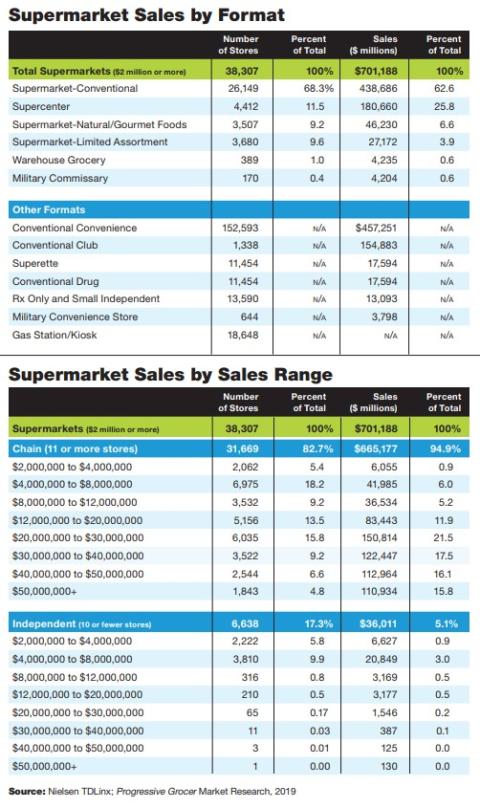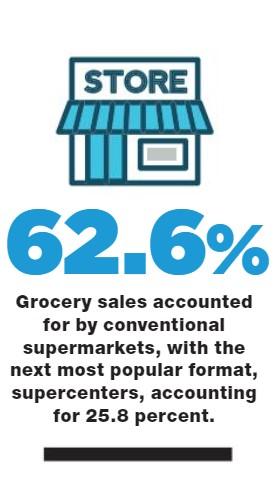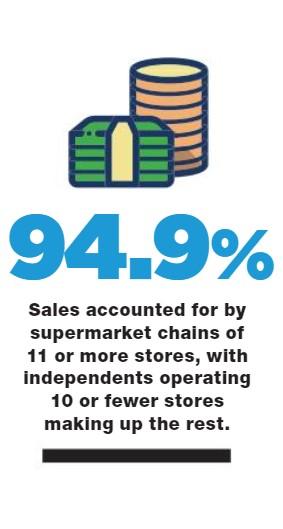Grocery Disruptors Win in the Increasingly Fast-Paced Grocery Game: Annual Report
(Editors' Note: This is part one of a five-part series.)
READ THE REST OF THE REPORT
The lines between success and failure have been growing closer together. Grocers have had to shrug off their age-old reluctance to try new things because not to try is to fail. Fence-sitters have been forced to become limb-sitters. Always being in a state of readiness for a battle they ultimately might not win — it’s a reality that grocery retailers have spent the past several years getting used to.
Perpetual disruption by new generations of innovators have forced a mature $700 billion industry to enter a state of constant reinvention, investing significant resources in creating a seamless omnichannel experience while leveraging core competencies in feeding the masses.
“A great ecommerce business sits on a great brick-and-mortar business. You can’t have one without the other,” Albertsons Cos. CEO Jim Donald remarked at this year’s Shoptalk conference.
Technology and competition are great motivators for innovation, but grocery executives responding to Progressive Grocer’s latest Annual Report survey said that talent is actually the top issue keeping them up at night.

“When you talk about technology, you talk about talent,” Ahold Delhaize CEO Frans Muller told Shoptalk attendees. “We invest in those who are fresh-minded — who understand the future of retail and the future of the shopper journey.”
Though seemingly shaken a bit compared with last year, retailers on the whole remain largely confident in their chances for continued success and growth — nearly half of our survey respondents described themselves as more optimistic than a year ago. That’s following a year marked by bankruptcies and store closures, and continued investment by Amazon in grocery, as well as German deep discounters Aldi and Lidl in U.S. expansion, along with ecommerce initiatives by the likes of Kroger and Albertsons.
“Amazon opening stores isn’t all bad for grocery retailers, or something that should instill only fear,” Albertsons’ Donald said at Shoptalk. “In the end, it keeps retailers sharp and encourages innovation.”
In fact, more retailers this year than last year told us that they see the current climate as an opportunity. Additionally, consumer confidence is on the rise, and PG’s own research indicates that consumers are optimistic about the year ahead.

Fresh categories continue to lead most retailers’ hopes for maintaining an edge against competitors. Consumers’ growing interest in overall wellness, clean-label foods and product transparency all present opportunities for supermarket operators.
“Health is critical not only for a grocer’s business, but also for customer retention,” Ahold Delhaize’s Muller remarked at Shoptalk. “Grocers can help shoppers prevent disease and illness through better food and teaching better eating habits. Remember: Food is less expensive than health care.”
Meanwhile, most retailers plan to continue upping their investments in technology — for example, Kroger’s already expanding its use of autonomous delivery vehicles beyond the initial trial and is advancing its partnership with U.K.- based Ocado for online fulfillment in the United States.

Robotics, artificial intelligence and leveraging of Big Data shopper insights will all play increasingly important roles in delivering a seamless consumer experience, regardless of how folks choose to access the store.
As Instacart Chief Business Officer Nilam Ganenthiran noted at Shoptalk, “It’s a misnomer to think there’s an online customer and an offline customer. In reality, there is just a customer.”
It’s a far different retail world that we live in compared with just a year ago, and expect even more changes a year from now. Change is constant, accelerating and far-reaching. And it’s all happening with one goal in mind.
“Grocery retail isn’t about selling, but about serving,” Sprouts Farmers Market Co-CEO, President and COO Jim Nielsen said at Shoptalk. “There’s a level of gratitude gained when a grocer serves the customer.”
Progressive Grocer’s 86th Annual Report of the Grocery Industry is based primarily on an exclusive survey conducted among executives at supermarket chains and independent operators across the United States.
Among this year’s 66 retail executive participants, 64 percent classify themselves as independent retailers, 21 percent as regional chains and 5 percent as national chains. Of the total respondents, 74 percent operate fewer than 50 stores, while 26 percent operate 50 stores or more.
Additional store count and sales data are provided by Nielsen TDLinx, which maintains a national database of supermarket and other retail-format locations.



